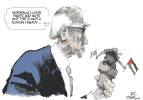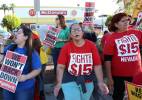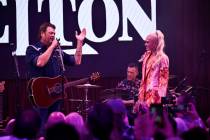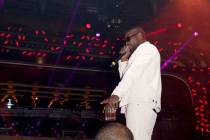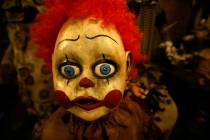You pick the plot in ‘The Mystery of Edwin Drood’



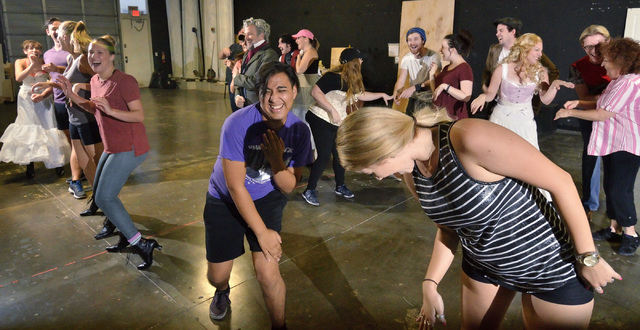
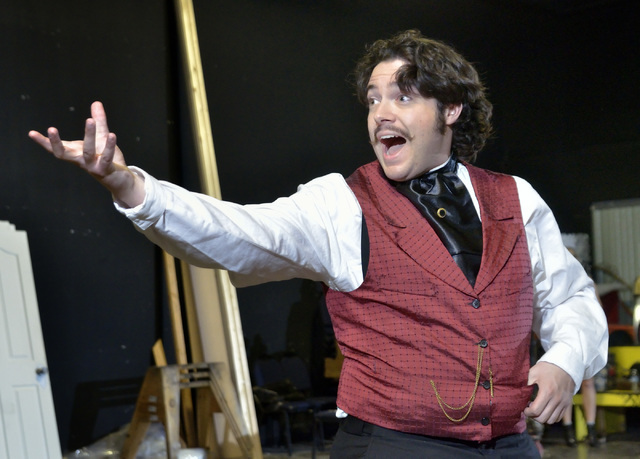
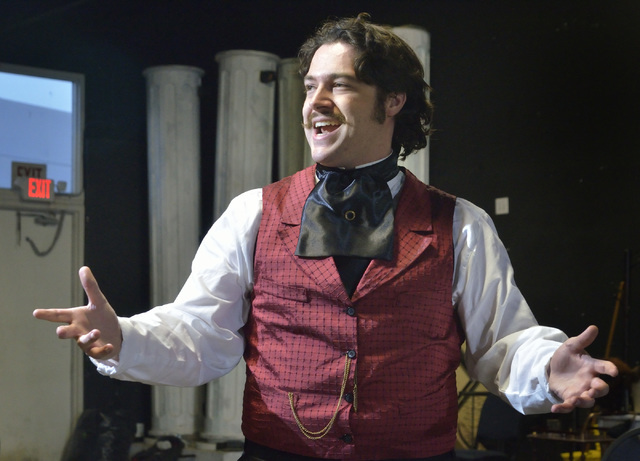
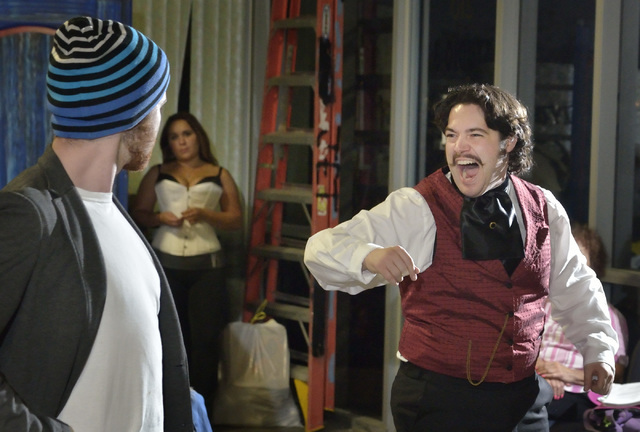
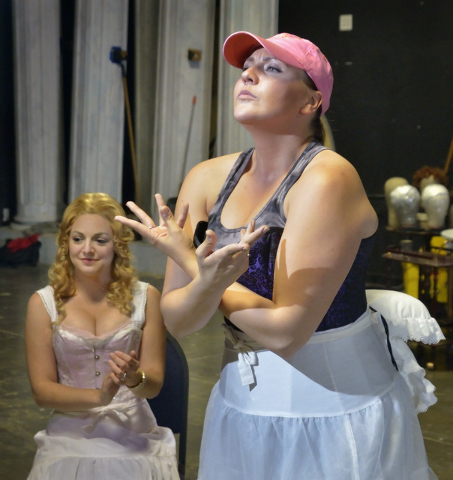
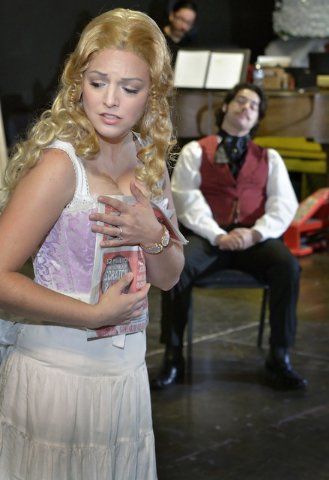

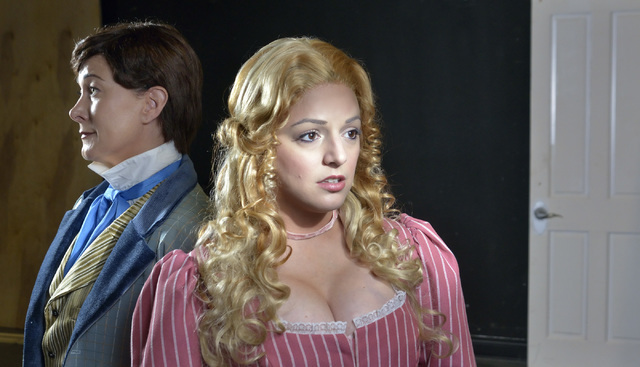



Rupert Holmes has a thing for twists.
Consider the O. Henry-worthy one at the end of his 1979 chart-topper “Escape” — better known to one and all as “The Pina Colada Song.” (All together now: “If you like pina coladas … ”)
Or ponder the two Edgar Awards he’s won from the Mystery Writers of America.
But that’s nothing compared to the twists Holmes built into “The Mystery of Edwin Drood.”
The multiple Tony-winning musical, for which Holmes wrote the book and score, concludes the 2016 Super Summer Theatre season with a nine-performance run starting Thursday at Spring Mountain Ranch State Park.
Based on Charles Dickens’ final, incomplete novel, “Edwin Drood” offers audiences not one or two but three chances to influence the play’s outcome.
Patrons first decide the detective charged with solving the mystery, then choose whodunit. A final audience vote determines the characters destined to become the designated happily-ever-after twosome.
Holmes thought the majority-rules voting process would be the most theatrical way to finish what Dickens started, “Drood’s” creator says in a telephone interview from his East Coast base. “You could create a new ending every night. And that’s the very height of theater,” something you can’t do on movies or TV.
Hundreds of combinations of endings have been computed since “Drood” debuted on Broadway in 1985, following a successful summer run in New York’s Central Park. (The show also had a 2012 Broadway revival.)
“To me, it was something that had never been done in a musical,” Holmes reflects, describing the process as “what the theater is all about — that wonderful conspiracy between actors and audience.”
With eight potential murderers and 36 combinations of lovers — each with their own dialogue, the writer-composer reflects — “Drood” definitely ranks as a challenging work.” Cast members have“nowhere to hide,” he adds, “because you may be called upon” at the end to play the villain, the detective, or the lover.
Yet there’s another layer complicating the proceedings, notes director Joe Hynes, whose Hynes-Sight Productions is staging the Super Summer Theatre run.
That’s because “The Mystery of Edwin Drood” is really a play-within-a-play, presented by the members of a musical hall troupe in Victorian-era London.
“A lot of times, the actors will ask me, ‘Hold on, Joe — are we the actors, or are we the ‘Drood’ characters?’ ” Hynes says prior to a recent rehearsal.
A 14-piece live orchestra (“rare in this town,” Hynes notes) will perform Holmes’ Tony-winning score, which ranges from lively Gilbert-and-Sullivan-style patter numbers (“Both Sides of the Coin”) to haunting ballads (“Moonfall”).
And while staging “Drood” does represent “a logistical challenge,” Holmes acknowledges, “it’s also the reward for the audience, if the director and cast are bold enough. It’s an experience you don’t get at the movies.”
The musical opens with a raucous welcome (“There You Are”), as the Music Hall Royale’s chairman (Glenn Heath) introduces the performers who’ll be presenting “a musicale with dramatic interludes,” one that takes audiences from the cathedral town of Cloisterham to the depths of a London opium den.
The link between the two: choirmaster John Jasper (Anthony Meyer), who’s plagued by wild dreams, possibly insane and definitely obsessed with his blooming pupil Rosa Bud (Amanda Collins).
She’s engaged to Jasper’s nephew — none other than Drood himself, who’s played by a music hall star specializing in male impersonation (Melissa Riezler).
Other play-within-a-play players range from Princess Puffer (Andee Gibbs), proprietor of the aforementioned opium den, to Cloisterham’s resident cleric, the Rev. Mr. Crisparkle (Joshua Meltzer).
Add twins newly arrived from Ceylon (Caitlin Shea, Adam Dunson), plus assorted ne’er-do-wells, and there are “a lot of interesting musical components here,” says Holmes.
When writing the show, “I thought the ideal combination would be to structure it so any combination” of culprit, detective and lovers “would be equally fun,” he explains. “Some are comedic, some serious,” with some “that are truer to Dickens than some of the nonsense” audiences occasionally demand.
“The audiences tend to be a bit mischievous, particularly with the pairs of lovers,” Holmes observes, noting that, back in the ’80s, no one would have voted for the Landless twins as the resident lovers. “Nowadays,” he adds, “it happens all the time.”
Perhaps not the night you discover “The Mystery of Edwin Drood.”
But one thing’s sure: cast members are “never going to tell the audience, ‘Go home — we don’t have an ending,’ ” the musical’s creator says. “It’s something that’s hard to pull off — but very exciting when it happens. And, when it does happen, it’s a treat.”
Read more stories from Carol Cling at reviewjournal.com. Contact her at ccling@reviewjournal.com and follow @CarolSCling on Twitter.
Preview
Who: Super Summer Theatre
What: “The Mystery of Edwin Drood”
When: 7:30 p.m. Thursdays through Saturdays, through Sept. 24
Where: Spring Mountain Ranch State Park, 10 miles west of Charleston Boulevard and the Las Vegas Beltway
Tickets: $12.95-$20 (702-594-7529, www.showtix4u.com)







